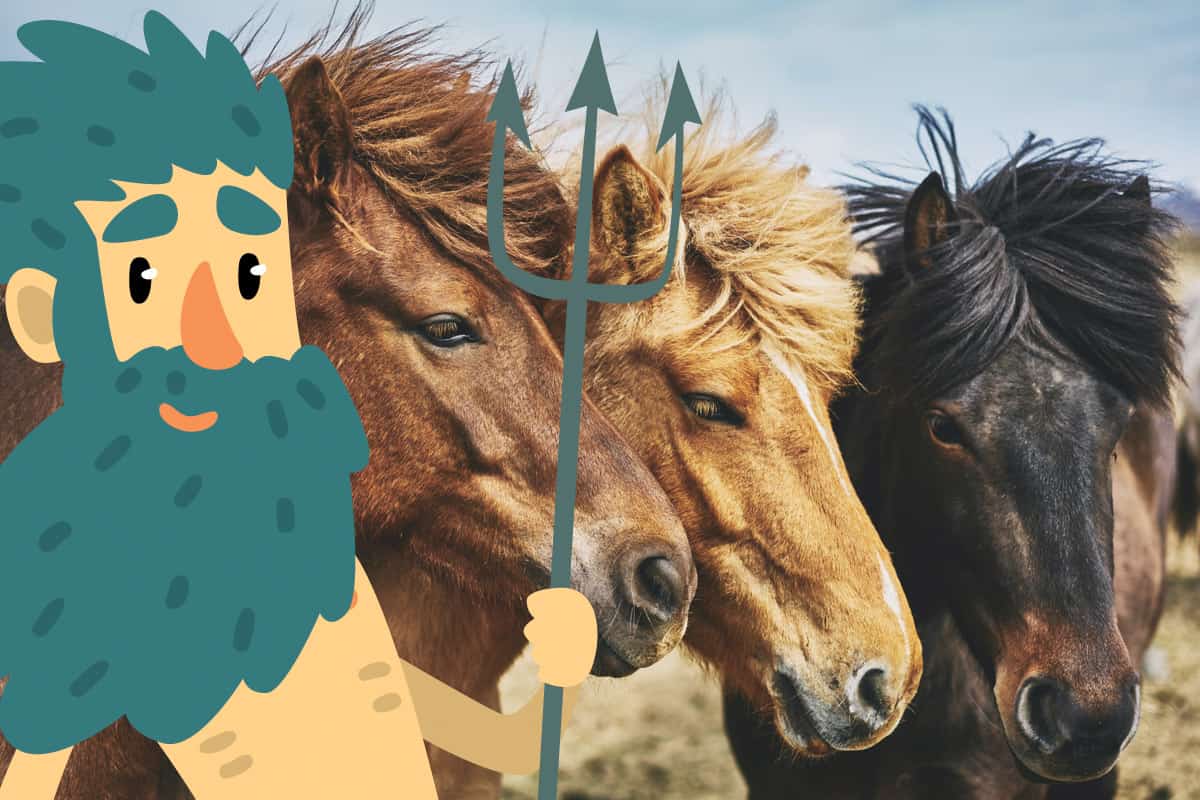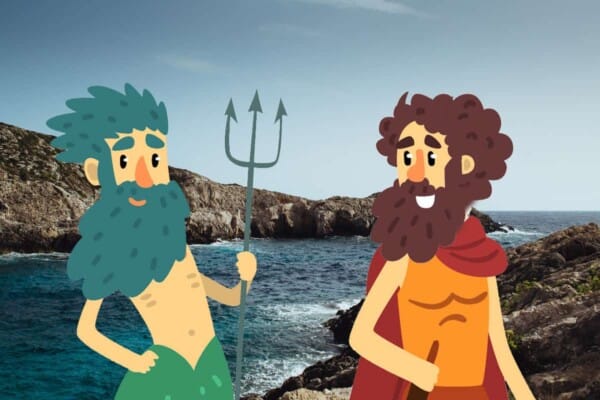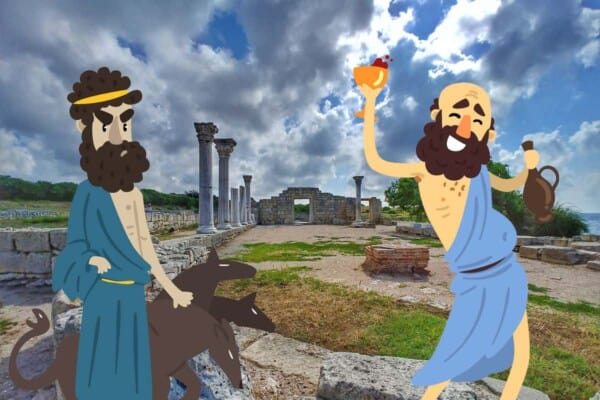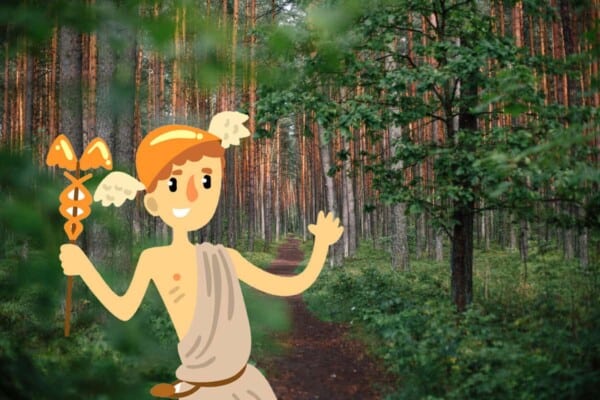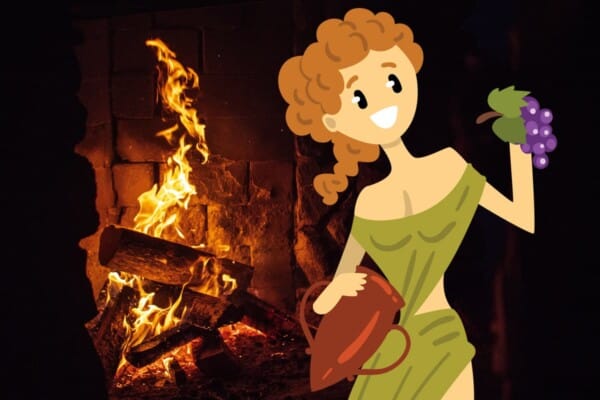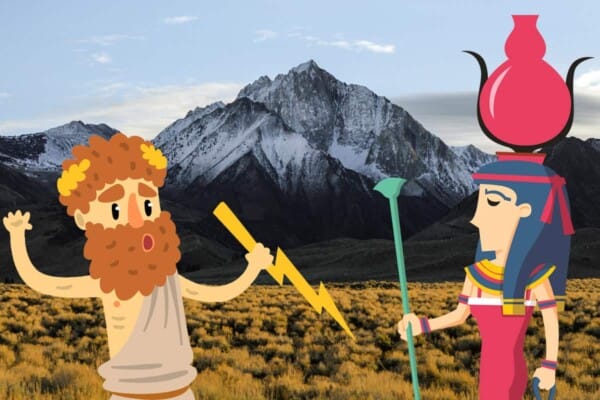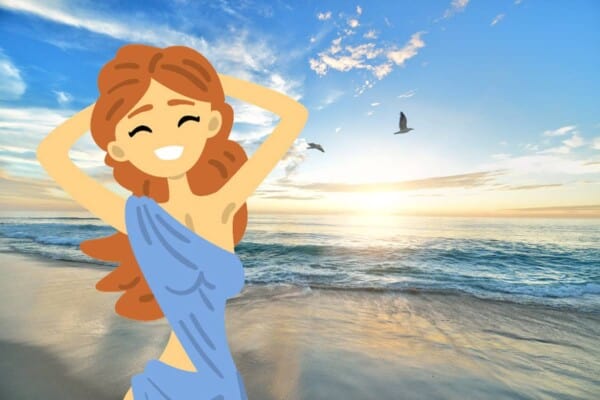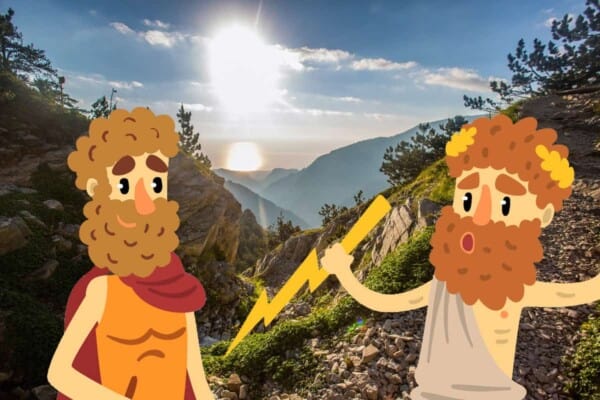After the war against the Titans was over, Poseidon took to the seas. Dolphins and tridents became his most beloved symbols and aids. And somehow a horse, a creature destined for the land, also became one of his primary symbols. He used his trident to calm the seas and to work them into a storm, to give water and to take it away at whim. Dolphins became his most trusted messengers and the horse came with a fragile kind of pride.
There does come a point in the study of Greek lore where nothing comes as a surprise. The horse, and his other symbols, fall in line with exactly what one might expect from a Greek deity.
What are Poseidon’s Symbols?
1. The Trident
First up – the trident. It’s the first thing you probably think of when you think of God of the sea. In Poseidon’s case, the trident was gifted to him – alongside the lightning bolt of Zeus and the Helmet of Hades – by the Cyclops in order to support the three brothers in overthrowing Cronus and taking rule of Olympus.
According to lore, Poseidon uses his trident to bring forth and calm the sea. Just as he can deliver water, he can also take it away as he did in retaliation after Athena won Attica from him in a competition. Ironically, it was his act of drawing forth water for Attica that started the competition with Athena in the first place.
The trident likely is associated with Poseidon (and sea gods in general) because it was once a commonly used tool for fishing. Throughout the years it has gone on to develop different symbolism. For example, the Navy SEALS have a trident in their logo which they say symbolizes courage, honor and discipline. But according to an ancient Vatican text, the three prongs of the trident symbolize liquidity, fecundity and drinkability.
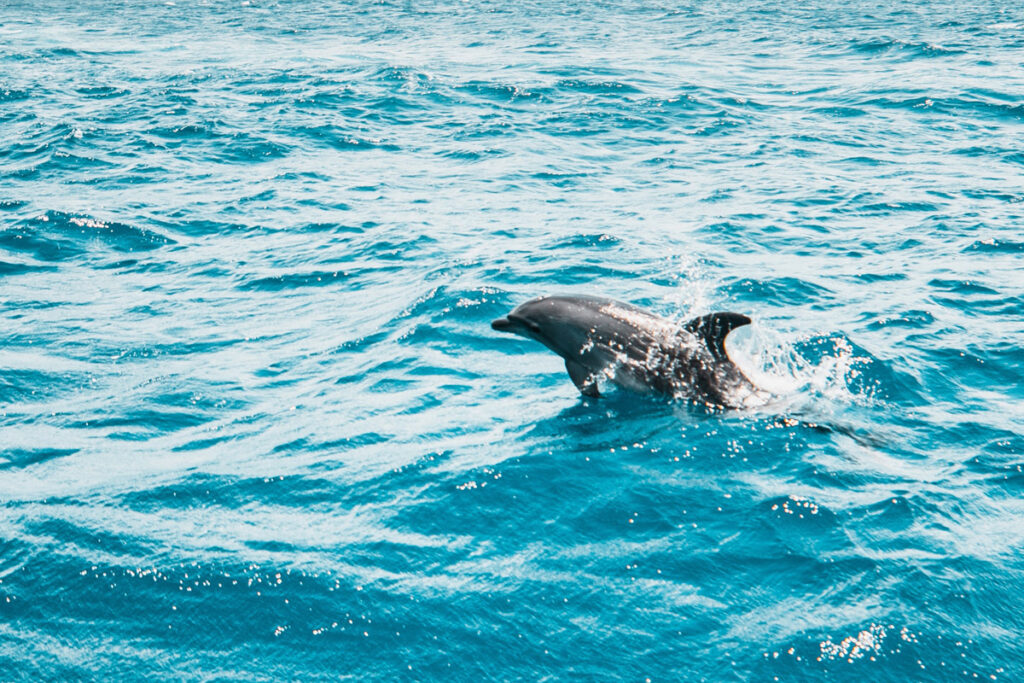
2. The Dolphin
In some iconography, Poseidon is seen sitting astride dolphins or in a chariot pulled by dolphins. He stands, fierce, white beard billowing, eerily similar to his brother Zeus, amidst churning oceans and the foam it brings forth. The dolphins were once considered the messengers of the sea and as a result were messengers of Poseidon himself.
The ancient Greeks believed that killing a dolphin was the worst possible sin a person could commit – likely because there were many sailor tales and myths alike that posited dolphins as rescuers and friends of humans. In one myth, a group of pirates had kidnapped Dionysis, mistaking him as a prince. The drunken god grew enraged, turning the oars into snakes, and scaring the pirates so horribly they chose to jump into the sea. Eventually, Dionysis chose to let them live but instead of rescuing them, turned them into dolphins and directed them to help humans whenever they could.
3. The Horse
The horse is a symbol of Posiedon because according to Greek lore he created them. According to one myth, the people of Athens were attempting to select a patron deity. The competition came down between Athena and Poseidon. The people of the island asked each for a gift and said whoever gave the most useful gift would be worshiped as the patron deity. Poseidon waved his hand over the sea, causing it to rumble and foam. From the foam came the first horse and he explained that it would ease their burdens and labors as well as provide enjoyment and companionship.
Unimpressed, Athena drew the first olive tree from the earth and explained all its many uses from food to fuel for fire and all the medicinal properties of the oil. The people ultimately chose Athena and named their city after her although Poseidon would remain a close, second-favorite.
According to a second myth, he created the horse to impress Demeter who until that point remained unmoved and uninterested in his advances.

